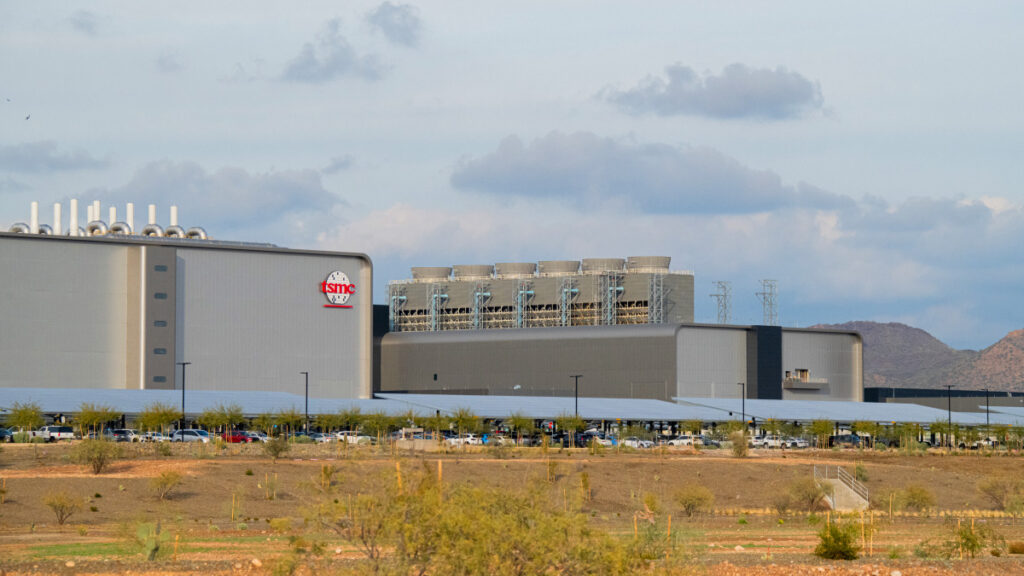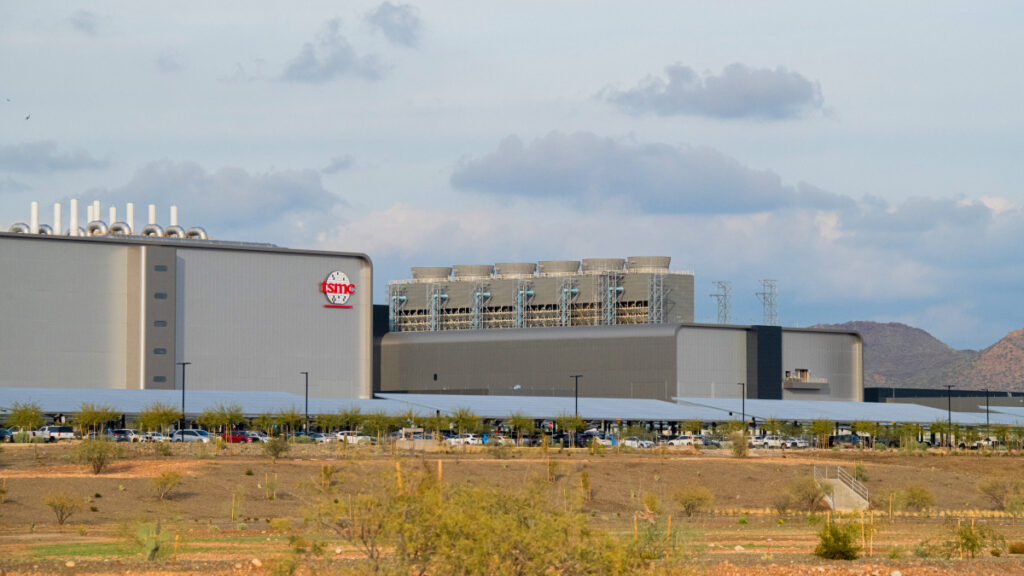Nvidia has announced plans to manufacture AI chips and build complete supercomputers in the United States for the first time. The company is commissioning over one million square feet of manufacturing space across Arizona and Texas. This move comes amid rising US-China tensions and the current administration’s push for domestic manufacturing.
The announcement comes less than two weeks after the administration’s rollout of new tariffs and just two days after contradictory messages on electronic component exemptions. On Friday night, the US Customs and Border Protection exempted electronics, including smartphones, computers, and semiconductors, from the tariffs. However, by Sunday, the administration contradicted this move, claiming the exemptions were temporary and that electronics would face new tariffs in the coming months.
Nvidia has already begun producing its Blackwell chips at Taiwan Semiconductor Manufacturing Co’s (TSMC) facilities in Phoenix. Until now, the company’s AI chips were manufactured exclusively in Taiwan, presenting geopolitical risks to the supply chain. The company is also setting up supercomputer manufacturing plants in Texas, partnering with Foxconn in Houston and Wistron in Dallas, with mass production expected to ramp up within 12 to 15 months.
“The engines of the world’s AI infrastructure are being built in the United States for the first time,” said Jensen Huang, Nvidia’s founder and CEO, in a news release. “Adding American manufacturing helps us better meet the growing demand for AI chips and supercomputers, strengthens our supply chain, and boosts our resiliency.”
For chip packaging and testing operations, Nvidia is collaborating with Amkor and SPIL in Arizona. The supply chain for advanced GPUs requires advanced manufacturing, packaging, and testing technologies that each partner provides.
This development comes as Nvidia reportedly avoided export controls on its H20 chip by striking a domestic manufacturing deal with the administration. The H20 is Nvidia’s most powerful AI chip that can still be legally exported to China under current US restrictions.
Nvidia’s new US manufacturing initiative is ambitious, aiming to produce up to half a trillion dollars of AI infrastructure in the United States over the next four years. The company claims its efforts could create “hundreds of thousands” of jobs and drive “trillions of dollars” in economic activity in the coming decades. However, given the uncertainty surrounding domestic and international trade policy, it’s difficult to say whether those plans will come to pass as envisioned.

The Trump administration has reportedly pressured TSMC directly, telling the company it would face a tariff of up to 100 percent if it didn’t build new chip factories in the US. Retaliatory tariffs on Chinese parts threaten the supply of raw materials to build chips in America, and the US lacks the necessary quantity of skilled manufacturing workers for assembling chips.
Significant questions remain about the viability of full production onshoring for Nvidia chips. Reports indicated that while front-end processing of Blackwell chips could take place in Arizona, the chips might still need to be shipped to Taiwan for advanced packaging using TSMC’s chip-on-wafer-on-substrate (CoWoS) technology.
Nvidia plans to use its own technologies in these facilities, including “NVIDIA Omniverse to create digital twins of factories and NVIDIA Isaac GR00T to build robots to automate manufacturing.” This suggests the company intends to incorporate significant automation in its US manufacturing operations.


